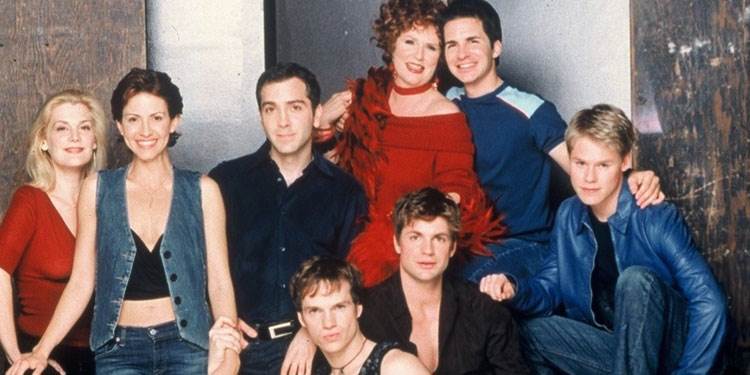
- The TV series "Queer as Folk" premiered in 2000 and depicted LGBT culture at a time when the political landscape in the US was markedly different: - Gay marriage was illegal. - The Defense of Marriage Act and Don't Ask, Don't Tell policies were still in effect. - Sodomy laws were present in 14 states, criminalizing same-sex acts.
- The show provided an unfiltered look at LGBT lives through characters like Brian Kinney, Michael Novotny, Emmett Honeycutt, Justin Taylor, Ted Schmidt, Ben Bruckner, Lindsay Peterson, and Melanie Marcus.
- The series ran for five seasons, totaling 83 episodes, tackling critical issues such as gay bashing, adoption, coming out, HIV/AIDS, and the struggle for equality.
- The impact of "Queer as Folk" paved the way for subsequent series like "Glee," "Looking," "Modern Family," and "The Fosters."
- Series creators Ron Cowen and Daniel Lipman became involved after a failed project at Showtime, leading them to pitch the idea of creating an American version of the British show.
- The initial response from Showtime was positive, thanks to President Jerry Offsay, who was brave enough to greenlight the daring series.
- The creators faced numerous challenges during the show's development, particularly in casting: - Major agencies were reluctant to allow their clients to audition. - The initial casting sessions saw very low turnout, with many actors labeled as unavailable (N/A).
- The first major casting success was Scott Lowell, followed by Peter Paige, who initially auditioned for Ted but was later cast as Emmett after reading for the part.
- Sharon Gless (Debbie) was cast from her own initiative and desire to be part of the show, despite the role being much smaller initially.
- Randy Harrison (Justin) was found through a secondary review of audition tapes from a New York casting agent.
- Gail Harold (Brian) was one of the final major cast members found, after an intensive search that led to filming in cold weather past the planned production schedule.
- Personal experiences and commitments of the cast members: - Harold initially hesitated due to prior commitments but ultimately accepted the role.
- Peter Paige, openly gay, faced a unique challenge when his manager presented him with a substantial nudity rider attached to his contract just before the screen test. - The series overcame significant hurdles, both in production and societal perceptions, contributing to its longstanding legacy and influential status in television history.




















